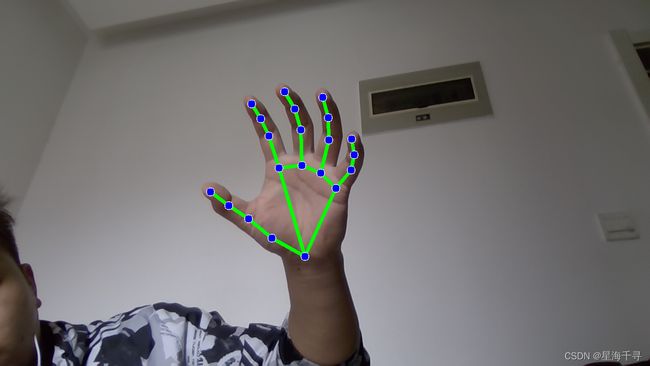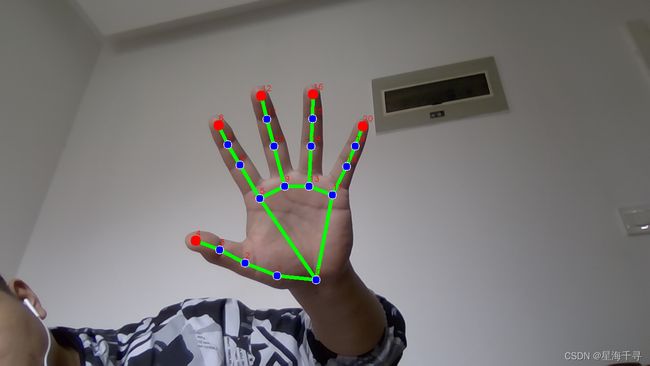- 全面掌握PDF编辑:使用Foxit PDF Editor 22.1.1102
IBEANI
本文还有配套的精品资源,点击获取简介:FoxitPDFEditor22.1.1102是一款专业的PDF编辑工具,专为编辑、修改和创建PDF文档而设计。拥有直观的用户界面,使得用户即使技术不熟练也能轻松上手。它提供文本编辑、图像处理、页面管理、注释与标记、表单填写与创建、安全设置、批注工具、合并与分割、转换功能和OCR识别等核心功能。软件还支持自定义工具栏,提高工作效率。为保障数据安全和个人隐私,用
- 基于python的图像识别_基于PYTHON的图片文字识别
文本资料的图像文件进行分析识别处理,获取文字及版面信息的过程。一般包括以下几个过程:图像输入、图像前处理、预识别:1图像输入:对于不同的图像格式,有着不同的存储格式,不同的压缩方式,目前有OpenCV、CxImage等开源项目。2预处理:主要包括二值化,噪声去除,倾斜较正等。2.1二值化:对摄像头拍摄的图片,大多数是彩色图像,彩色图像所含信息量巨大,对于图片的内容,我们可以简单的分为前景与背景,为
- 仓库货物检测:基于YOLOv5的深度学习应用与UI界面开发
YOLO实战营
YOLO深度学习ui目标跟踪目标检测人工智能
一、引言随着电商和物流行业的快速发展,仓库货物管理已经成为企业运营中至关重要的环节。为了提高仓库管理的效率和准确性,越来越多的企业开始应用自动化技术来完成货物的盘点、分类、分拣等任务。传统的货物管理方式通常依赖人工检查,不仅效率低下,而且容易出现误差。为了克服这些问题,利用计算机视觉和深度学习技术来实现仓库货物的自动化检测成为了一种有效的解决方案。本博客将介绍如何使用YOLOv5进行仓库货物检测,
- 感受大师的代码风格_opencv源代码结构分析一
最近在调用opencv的时候,我总是去看看opencv的原代码.在那些烦琐的宏定义里面感觉自己还是很有意思的.cvGet2D(constCvArr*arr,inty,intx);//第一个坐标是y坐标,第二个是x坐标CV_IMPLCvScalarcvGet2D(constCvArr*arr,inty,intx)//CV_IMPL宏定义extern"C"{CvScalarscalar={{0,0,0
- Opencv学习_2 (opencv结构&显示图像)
opencv结构:1:主要包含:cxcorecvmachinelearninghighguicvcamcvaux2:cxcore:基础结构:CvPoint,CvSize,CvScalar等数组结构:cvCreateImage,cvCreateMat等动态结构:CvMemStorage,CvMemBlock等绘图函数:cvLine,cvRectangle等数据保存和运行时类型信息:CvFileSto
- 探索OpenCV 3.2源码:计算机视觉的架构与实现
轩辕姐姐
本文还有配套的精品资源,点击获取简介:OpenCV是一个全面的计算机视觉库,提供广泛的功能如图像处理、对象检测和深度学习支持。OpenCV3.2版本包含了改进的深度学习和GPU加速特性,以及丰富的示例程序。本压缩包文件提供了完整的OpenCV3.2源代码,对于深入学习计算机视觉算法和库实现机制十分宝贵。源码的模块化设计、C++接口、算法实现、多平台支持和性能优化等方面的深入理解,都将有助于开发者的
- 【Python】人脸识别
宅男很神经
python开发语言
第一章:计算机视觉与图像处理的基石在深入人脸识别之前,我们必须首先牢固掌握计算机视觉和图像处理的基本概念。人脸,本质上就是一张复杂的图像,对图像的理解是所有高级视觉任务的起点。1.1图像的本质:像素与数字化表示图像,在我们看来是连续的画面,但在计算机内部,它却是离散的数值矩阵。1.1.1什么是像素?图像的最小单元像素(Pixel),是构成数字图像的最小单位。可以将其想象成一个微小的彩色点。一张数字
- 轻松掌握EasyX图形库在Visual C++ 6.0中的应用
Randy Rhoads
本文还有配套的精品资源,点击获取简介:EasyX图形库为VisualC++6.0环境提供了简便的图形界面编程功能。它包括丰富的图形绘制、图像处理、文字操作、图形变换和事件处理等核心特性,辅以详细的API文档和示例代码。该库支持在多个操作系统版本上运行,且具有优化的性能,极大地简化了图形界面的开发流程。1.easyX图形库概述1.1引言easyX图形库是一个基于Windows操作系统的简单易用的图形
- 计算机视觉算法实战——关键点检测
✨个人主页欢迎您的访问✨期待您的三连✨✨个人主页欢迎您的访问✨期待您的三连✨✨个人主页欢迎您的访问✨期待您的三连✨1.引言关键点检测(KeypointDetection)是计算机视觉领域中的一个重要研究方向,旨在从图像或视频中检测出具有特定语义信息的关键点。这些关键点通常代表了物体的特定部位或特征,例如人体的关节、面部特征点、车辆的轮子等。关键点检测在姿态估计、动作识别、目标跟踪、三维重建等任务中
- 复杂场景检测老翻车?陌讯算法实测提升 40%
2501_92453489
算法视觉计算机视觉视觉检测
在工业质检、安防监控等计算机视觉落地场景中,工程师常面临棘手问题:传统算法在光照突变、目标遮挡等复杂环境下,漏检率高达20%以上,泛化能力不足成为项目落地的最大阻碍。而陌讯AI视觉算法通过架构创新,正在重新定义复杂场景下的检测精度标准。技术解析:从单模态到多模态的跨越传统目标检测模型多依赖单一RGB图像输入,在特征提取阶段容易受环境干扰。以经典的FasterR-CNN为例,其区域提议网络(RPN)
- 天文图像处理:星系分类与天体定位
xcLeigh
计算机视觉CV图像处理分类人工智能AI计算机视觉
天文图像处理:星系分类与天体定位一、前言二、天文图像处理基础2.1天文图像的获取2.2天文图像的格式2.3天文图像处理的基本流程三、天文图像预处理3.1去噪处理3.2平场校正3.3偏置校正四、星系分类4.1星系的分类体系4.2基于特征提取的星系分类方法4.3基于深度学习的星系分类方法五、天体定位5.1天体坐标系统5.2基于星图匹配的天体定位方法5.3基于深度学习的天体定位方法六、总结与展望致读者一
- 微算法科技研究量子视觉计算,利用量子力学原理提升传统计算机视觉任务的性能
计算机视觉,作为人工智能领域的一个重要分支,致力于模拟人类视觉系统对图像或视频等视觉数据的理解与分析能力。它涵盖了图像识别、目标检测、图像分割等一系列复杂任务,广泛应用于自动驾驶、医疗影像分析、安防监控等多个领域。然而,随着数据规模的不断膨胀和任务复杂度的日益提升,传统计算机视觉算法在处理大规模、高维度数据时遇到了性能瓶颈。微算法科技(NASDAQ:MLGO)研究量子视觉计算,探索量子计算与经典卷
- 高通平台camera构架sensor驱动详解
a55662551
androidcamera驱动v4l2
1.Sensor驱动的基本概念与流程Sensor驱动的作用:Sensor驱动是Camera硬件与CamX框架之间的桥梁,负责控制Sensor的启动、数据采集、寄存器配置以及与图像处理单元(如IFE、BPS)的交互。通俗理解:就像工厂的“原料采集工”,负责从摄像头传感器(如CMOS)获取原始图像数据,并将数据传递到流水线(Pipeline)中进行加工。数据流关键步骤:Sensor初始化:配置电源、时
- FPGA小白到项目实战:Verilog+Vivado全流程通关指南(附光学类岗位技能映射)
阿牛的药铺
算法移植部署fpga开发verilog
FPGA小白到项目实战:Verilog+Vivado全流程通关指南(附光学类岗位技能映射)引言:为什么这个FPGA入门路线能帮你快速上岗?本文设计了一条**"Verilog语法→工具链操作→光学项目实战→岗位技能对标"的阶梯式学习路径。不同于泛泛而谈的FPGA教程,我们聚焦光学类产品开发**核心能力(时序接口设计、图像处理算法移植、高速接口应用),通过3个递进式项目(从LED闪烁到图像边缘检测),
- PyTorch & TensorFlow速成复习:从基础语法到模型部署实战(附FPGA移植衔接)
阿牛的药铺
算法移植部署pytorchtensorflowfpga开发
PyTorch&TensorFlow速成复习:从基础语法到模型部署实战(附FPGA移植衔接)引言:为什么算法移植工程师必须掌握框架基础?针对光学类产品算法FPGA移植岗位需求(如可见光/红外图像处理),深度学习框架是算法落地的"桥梁"——既要用PyTorch/TensorFlow验证算法可行性,又要将训练好的模型(如CNN、目标检测)转换为FPGA可部署的格式(ONNX、TFLite)。本文采用"
- 霍夫变换(Hough Transform)算法原来详解和纯C++代码实现以及OpenCV中的使用示例
点云SLAM
算法图形图像处理算法opencv图像处理与计算机视觉算法直线提取检测目标检测霍夫变换算法
霍夫变换(HoughTransform)是一种经典的图像处理与计算机视觉算法,广泛用于检测图像中的几何形状,例如直线、圆、椭圆等。其核心思想是将图像空间中的“点”映射到参数空间中的“曲线”,从而将形状检测问题转化为参数空间中的峰值检测问题。一、霍夫变换基本思想输入:边缘图像(如经过Canny边缘检测)输出:一组满足几何模型的形状(如直线、圆)关键思想:图像空间中的一个点→参数空间中的一个曲线参数空
- 用OpenCV标定相机内参应用示例(C++和Python)
下面是一个完整的使用OpenCV进行相机内参标定(CameraCalibration)的示例,包括C++和Python两个版本,基于棋盘格图案标定。一、目标:相机标定通过拍摄多张带有棋盘格图案的图像,估计相机的内参:相机矩阵(内参)K畸变系数distCoeffs可选外参(R,T)标定精度指标(如重投影误差)二、棋盘格参数设置(根据自己的棋盘格设置):棋盘格角点数:9x6(内角点,9列×6行);每个
- 被动降噪的概念及编程实现
CodeByte
人工智能算法javascript编程
被动降噪是指通过编程技术和算法,对输入的数据进行处理,以减少或消除其中的噪声。噪声可以是各种形式的干扰,例如来自传感器、通信信号或其他外部源的干扰。在本文中,我们将探讨被动降噪的意义以及如何使用编程来实现这一目标。被动降噪的意义:噪声对数据的准确性和可靠性产生负面影响。在许多应用领域,例如图像处理、音频处理和信号处理中,噪声的存在可能导致数据质量下降,使得后续的分析和处理变得困难。因此,被动降噪技
- 目标检测(object detection)
加油吧zkf
目标检测目标检测人工智能计算机视觉
目标检测作为计算机视觉的核心技术,在自动驾驶、安防监控、医疗影像等领域发挥着不可替代的作用。本文将系统讲解目标检测的概念、原理、主流模型、常见数据集及应用场景,帮助读者构建对这一技术的完整认知。一、目标检测的核心概念目标检测(ObjectDetection)是指在图像或视频中自动定位并识别出所有感兴趣的目标的技术。它需要解决两个核心问题:分类(Classification):确定图像中每个目标的类
- 微算法科技的前沿探索:量子机器学习算法在视觉任务中的革新应用
MicroTech2025
量子计算算法
在信息技术飞速发展的今天,计算机视觉作为人工智能领域的重要分支,正逐步渗透到我们生活的方方面面。从自动驾驶到人脸识别,从医疗影像分析到安防监控,计算机视觉技术展现了巨大的应用潜力。然而,随着视觉任务复杂度的不断提升,传统机器学习算法在处理大规模、高维度数据时遇到了计算瓶颈。在此背景下,量子计算作为一种颠覆性的计算模式,以其独特的并行处理能力和指数级增长的计算空间,为解决这一难题提供了新的思路。微算
- Android 图像处理 - Bitmap 图像处理观察记录(基本图像复制、带目录创建的图像复制、字节流处理的图像复制、并发图像复制、单线程池顺序图像复制)
Bitmap图像处理观察记录1、基本图像复制从应用内部存储目录读取test.png使用BitmapFactory解码为Bitmap对象将Bitmap重新压缩保存为newTest.png操作成功,compress返回trueFilefile=newFile(getFilesDir(),"test.png");StringabsolutePath=file.getAbsolutePath();Bitm
- OpenCV图像数据处理:convertTo,normalize和scaleAdd
luofeiju
OpenCV函数实战opencv
在OpenCV图像处理的世界里,有几个函数进行一些基本数据变换:cv::convertTo():类型转换与线性缩放;cv::normalize():归一化处理;cv::scaleAdd():加权叠加运算。cv::addWeighted():与scaleAdd相似,进行加权叠加运算;一、cv::convertTo():线性变换+数据类型转换voidcv::Mat::convertTo(OutputA
- Matplotlib-图像处理与可视化
Matplotlib-图像处理与可视化一、图像数据的本质:从数组到像素二、基础操作:加载与显示图像1.加载图像数据2.显示单张图像3.显示灰度图像三、进阶可视化:通道分离与色彩调整1.分离RGB通道2.调整亮度与对比度四、实用技巧:色彩映射与像素值分析1.自定义色彩映射(Colormap)2.像素值分布直方图五、多图对比与标注:算法结果可视化1.边缘检测结果对比2.图像标注:突出感兴趣区域六、注意
- 用Python和OpenCV从零搭建一个完整的双目视觉系统(三)
presenttttt
双目立体视觉数码相机
本系列文章旨在系统性地阐述如何利用Python与OpenCV库,从零开始构建一个完整的双目立体视觉系统。本项目github地址:https://github.com/present-cjn/stereo-vision-python.git在上一篇文章中,我们为项目设计了清晰的架构。现在,我们将深入第一个,也是整个双目视觉系统最关键的模块——相机标定(CameraCalibration)。如果说双目
- (一)OpenCV——噪声去除(降噪)
高斯滤波器(针对高斯噪声)高斯噪声是指它的概率密度函数服从高斯分布(即正态分布)的一类噪声。常见的高斯噪声包括起伏噪声、宇宙噪声、热噪声和散粒噪声等等。高斯滤波(Gaussianfilter)包含许多种,包括低通、带通和高通等,我们通常图像上说的高斯滤波,指的是高斯模糊(GaussianBlur),是一种高斯低通滤波,其过滤调图像高频成分(图像细节部分),保留图像低频成分(图像平滑区域),所以对图
- 前端开发常见问题
技术文章大纲性能优化问题页面加载速度慢的常见原因及解决方案渲染阻塞资源的处理方法图片与媒体文件优化策略懒加载与代码分割的实现方式浏览器兼容性问题不同浏览器对CSS特性的支持差异JavaScriptAPI的兼容性处理方案Polyfill的使用场景与实现方法自动化测试工具在兼容性测试中的应用响应式设计挑战移动端与桌面端布局适配问题媒体查询的最佳实践方案视口单位与相对单位的正确使用高DPI屏幕的图像处理
- OpenCV图片操作100例:从入门到精通指南(1)
总有刁民想爱朕ha
opencv计算机视觉人工智能
OpenCV图片操作100例:从入门到精通指南本文整理了100个OpenCV实用技巧,涵盖图像处理各个领域,助你轻松掌握计算机视觉核心技能!一、入门必备:基础操作1.图像读写与显示importcv2#读取图像(BGR格式)img=cv2.imread('image.jpg')#显示图像cv2.imshow('示例图片',img)cv2.waitKey(0)#按任意键退出cv2.destroyAll
- OpenCV图片操作100例:从入门到精通指南(3)
总有刁民想爱朕ha
opencv人工智能计算机视觉
高效学习路径:1️⃣分阶段学习:入门:1-20例(基础操作)进阶:21-50例(图像处理)高级:51-100例(计算机视觉)2️⃣项目驱动学习:证件照背景替换(1-15例)停车场车位检测(30-45例)视频运动追踪(70-85例)3️⃣性能优化技巧:#使用UMat加速图像处理umat_img=cv2.UMat(img)processed=cv2.GaussianBlur(umat_img,(5,5
- Python OpenCV教程从入门到精通的全面指南【文末送书】
一键难忘
pythonopencv开发语言
文章目录PythonOpenCV从入门到精通1.安装OpenCV2.基本操作2.1读取和显示图像2.2图像基本操作3.图像处理3.1图像转换3.2图像阈值处理3.3图像平滑4.边缘检测和轮廓4.1Canny边缘检测4.2轮廓检测5.高级操作5.1特征检测5.2目标跟踪5.3深度学习与OpenCVPythonOpenCV从入门到精通【文末送书】PythonOpenCV从入门到精通OpenCV(Ope
- OpenCV入门到精通:AI视觉处理的完整指南
AI云原生与云计算技术学院
人工智能opencv计算机视觉ai
OpenCV入门到精通:AI视觉处理的完整指南关键词:OpenCV、计算机视觉、图像预处理、目标检测、AI视觉应用摘要:本文是一份面向AI视觉爱好者的OpenCV完整学习指南。从OpenCV的核心概念讲起,结合生活案例、代码示例和项目实战,逐步拆解图像读取/显示、灰度化、边缘检测、目标检测等关键技术。无论你是想入门计算机视觉的新手,还是希望用OpenCV解决实际问题的开发者,都能通过本文掌握从理论
- 怎么样才能成为专业的程序员?
cocos2d-x小菜
编程PHP
如何要想成为一名专业的程序员?仅仅会写代码是不够的。从团队合作去解决问题到版本控制,你还得具备其他关键技能的工具包。当我们询问相关的专业开发人员,那些必备的关键技能都是什么的时候,下面是我们了解到的情况。
关于如何学习代码,各种声音很多,然后很多人就被误导为成为专业开发人员懂得一门编程语言就够了?!呵呵,就像其他工作一样,光会一个技能那是远远不够的。如果你想要成为
- java web开发 高并发处理
BreakingBad
javaWeb并发开发处理高
java处理高并发高负载类网站中数据库的设计方法(java教程,java处理大量数据,java高负载数据) 一:高并发高负载类网站关注点之数据库 没错,首先是数据库,这是大多数应用所面临的首个SPOF。尤其是Web2.0的应用,数据库的响应是首先要解决的。 一般来说MySQL是最常用的,可能最初是一个mysql主机,当数据增加到100万以上,那么,MySQL的效能急剧下降。常用的优化措施是M-S(
- mysql批量更新
ekian
mysql
mysql更新优化:
一版的更新的话都是采用update set的方式,但是如果需要批量更新的话,只能for循环的执行更新。或者采用executeBatch的方式,执行更新。无论哪种方式,性能都不见得多好。
三千多条的更新,需要3分多钟。
查询了批量更新的优化,有说replace into的方式,即:
replace into tableName(id,status) values
- 微软BI(3)
18289753290
微软BI SSIS
1)
Q:该列违反了完整性约束错误;已获得 OLE DB 记录。源:“Microsoft SQL Server Native Client 11.0” Hresult: 0x80004005 说明:“不能将值 NULL 插入列 'FZCHID',表 'JRB_EnterpriseCredit.dbo.QYFZCH';列不允许有 Null 值。INSERT 失败。”。
A:一般这类问题的存在是
- Java中的List
g21121
java
List是一个有序的 collection(也称为序列)。此接口的用户可以对列表中每个元素的插入位置进行精确地控制。用户可以根据元素的整数索引(在列表中的位置)访问元素,并搜索列表中的元素。
与 set 不同,列表通常允许重复
- 读书笔记
永夜-极光
读书笔记
1. K是一家加工厂,需要采购原材料,有A,B,C,D 4家供应商,其中A给出的价格最低,性价比最高,那么假如你是这家企业的采购经理,你会如何决策?
传统决策: A:100%订单 B,C,D:0%
&nbs
- centos 安装 Codeblocks
随便小屋
codeblocks
1.安装gcc,需要c和c++两部分,默认安装下,CentOS不安装编译器的,在终端输入以下命令即可yum install gccyum install gcc-c++
2.安装gtk2-devel,因为默认已经安装了正式产品需要的支持库,但是没有安装开发所需要的文档.yum install gtk2*
3. 安装wxGTK
yum search w
- 23种设计模式的形象比喻
aijuans
设计模式
1、ABSTRACT FACTORY—追MM少不了请吃饭了,麦当劳的鸡翅和肯德基的鸡翅都是MM爱吃的东西,虽然口味有所不同,但不管你带MM去麦当劳或肯德基,只管向服务员说“来四个鸡翅”就行了。麦当劳和肯德基就是生产鸡翅的Factory 工厂模式:客户类和工厂类分开。消费者任何时候需要某种产品,只需向工厂请求即可。消费者无须修改就可以接纳新产品。缺点是当产品修改时,工厂类也要做相应的修改。如:
- 开发管理 CheckLists
aoyouzi
开发管理 CheckLists
开发管理 CheckLists(23) -使项目组度过完整的生命周期
开发管理 CheckLists(22) -组织项目资源
开发管理 CheckLists(21) -控制项目的范围开发管理 CheckLists(20) -项目利益相关者责任开发管理 CheckLists(19) -选择合适的团队成员开发管理 CheckLists(18) -敏捷开发 Scrum Master 工作开发管理 C
- js实现切换
百合不是茶
JavaScript栏目切换
js主要功能之一就是实现页面的特效,窗体的切换可以减少页面的大小,被门户网站大量应用思路:
1,先将要显示的设置为display:bisible 否则设为none
2,设置栏目的id ,js获取栏目的id,如果id为Null就设置为显示
3,判断js获取的id名字;再设置是否显示
代码实现:
html代码:
<di
- 周鸿祎在360新员工入职培训上的讲话
bijian1013
感悟项目管理人生职场
这篇文章也是最近偶尔看到的,考虑到原博客发布者可能将其删除等原因,也更方便个人查找,特将原文拷贝再发布的。“学东西是为自己的,不要整天以混的姿态来跟公司博弈,就算是混,我觉得你要是能在混的时间里,收获一些别的有利于人生发展的东西,也是不错的,看你怎么把握了”,看了之后,对这句话记忆犹新。 &
- 前端Web开发的页面效果
Bill_chen
htmlWebMicrosoft
1.IE6下png图片的透明显示:
<img src="图片地址" border="0" style="Filter.Alpha(Opacity)=数值(100),style=数值(3)"/>
或在<head></head>间加一段JS代码让透明png图片正常显示。
2.<li>标
- 【JVM五】老年代垃圾回收:并发标记清理GC(CMS GC)
bit1129
垃圾回收
CMS概述
并发标记清理垃圾回收(Concurrent Mark and Sweep GC)算法的主要目标是在GC过程中,减少暂停用户线程的次数以及在不得不暂停用户线程的请夸功能,尽可能短的暂停用户线程的时间。这对于交互式应用,比如web应用来说,是非常重要的。
CMS垃圾回收针对新生代和老年代采用不同的策略。相比同吞吐量垃圾回收,它要复杂的多。吞吐量垃圾回收在执
- Struts2技术总结
白糖_
struts2
必备jar文件
早在struts2.0.*的时候,struts2的必备jar包需要如下几个:
commons-logging-*.jar Apache旗下commons项目的log日志包
freemarker-*.jar
- Jquery easyui layout应用注意事项
bozch
jquery浏览器easyuilayout
在jquery easyui中提供了easyui-layout布局,他的布局比较局限,类似java中GUI的border布局。下面对其使用注意事项作简要介绍:
如果在现有的工程中前台界面均应用了jquery easyui,那么在布局的时候最好应用jquery eaysui的layout布局,否则在表单页面(编辑、查看、添加等等)在不同的浏览器会出
- java-拷贝特殊链表:有一个特殊的链表,其中每个节点不但有指向下一个节点的指针pNext,还有一个指向链表中任意节点的指针pRand,如何拷贝这个特殊链表?
bylijinnan
java
public class CopySpecialLinkedList {
/**
* 题目:有一个特殊的链表,其中每个节点不但有指向下一个节点的指针pNext,还有一个指向链表中任意节点的指针pRand,如何拷贝这个特殊链表?
拷贝pNext指针非常容易,所以题目的难点是如何拷贝pRand指针。
假设原来链表为A1 -> A2 ->... -> An,新拷贝
- color
Chen.H
JavaScripthtmlcss
<!DOCTYPE HTML PUBLIC "-//W3C//DTD HTML 4.01 Transitional//EN" "http://www.w3.org/TR/html4/loose.dtd"> <HTML> <HEAD>&nbs
- [信息与战争]移动通讯与网络
comsci
网络
两个坚持:手机的电池必须可以取下来
光纤不能够入户,只能够到楼宇
建议大家找这本书看看:<&
- oracle flashback query(闪回查询)
daizj
oracleflashback queryflashback table
在Oracle 10g中,Flash back家族分为以下成员:
Flashback Database
Flashback Drop
Flashback Table
Flashback Query(分Flashback Query,Flashback Version Query,Flashback Transaction Query)
下面介绍一下Flashback Drop 和Flas
- zeus持久层DAO单元测试
deng520159
单元测试
zeus代码测试正紧张进行中,但由于工作比较忙,但速度比较慢.现在已经完成读写分离单元测试了,现在把几种情况单元测试的例子发出来,希望有人能进出意见,让它走下去.
本文是zeus的dao单元测试:
1.单元测试直接上代码
package com.dengliang.zeus.webdemo.test;
import org.junit.Test;
import o
- C语言学习三printf函数和scanf函数学习
dcj3sjt126com
cprintfscanflanguage
printf函数
/*
2013年3月10日20:42:32
地点:北京潘家园
功能:
目的:
测试%x %X %#x %#X的用法
*/
# include <stdio.h>
int main(void)
{
printf("哈哈!\n"); // \n表示换行
int i = 10;
printf
- 那你为什么小时候不好好读书?
dcj3sjt126com
life
dady, 我今天捡到了十块钱, 不过我还给那个人了
good girl! 那个人有没有和你讲thank you啊
没有啦....他拉我的耳朵我才把钱还给他的, 他哪里会和我讲thank you
爸爸, 如果地上有一张5块一张10块你拿哪一张呢....
当然是拿十块的咯...
爸爸你很笨的, 你不会两张都拿
爸爸为什么上个月那个人来跟你讨钱, 你告诉他没
- iptables开放端口
Fanyucai
linuxiptables端口
1,找到配置文件
vi /etc/sysconfig/iptables
2,添加端口开放,增加一行,开放18081端口
-A INPUT -m state --state NEW -m tcp -p tcp --dport 18081 -j ACCEPT
3,保存
ESC
:wq!
4,重启服务
service iptables
- Ehcache(05)——缓存的查询
234390216
排序ehcache统计query
缓存的查询
目录
1. 使Cache可查询
1.1 基于Xml配置
1.2 基于代码的配置
2 指定可搜索的属性
2.1 可查询属性类型
2.2 &
- 通过hashset找到数组中重复的元素
jackyrong
hashset
如何在hashset中快速找到重复的元素呢?方法很多,下面是其中一个办法:
int[] array = {1,1,2,3,4,5,6,7,8,8};
Set<Integer> set = new HashSet<Integer>();
for(int i = 0
- 使用ajax和window.history.pushState无刷新改变页面内容和地址栏URL
lanrikey
history
后退时关闭当前页面
<script type="text/javascript">
jQuery(document).ready(function ($) {
if (window.history && window.history.pushState) {
- 应用程序的通信成本
netkiller.github.com
虚拟机应用服务器陈景峰netkillerneo
应用程序的通信成本
什么是通信
一个程序中两个以上功能相互传递信号或数据叫做通信。
什么是成本
这是是指时间成本与空间成本。 时间就是传递数据所花费的时间。空间是指传递过程耗费容量大小。
都有哪些通信方式
全局变量
线程间通信
共享内存
共享文件
管道
Socket
硬件(串口,USB) 等等
全局变量
全局变量是成本最低通信方法,通过设置
- 一维数组与二维数组的声明与定义
恋洁e生
二维数组一维数组定义声明初始化
/** * */ package test20111005; /** * @author FlyingFire * @date:2011-11-18 上午04:33:36 * @author :代码整理 * @introduce :一维数组与二维数组的初始化 *summary: */ public c
- Spring Mybatis独立事务配置
toknowme
mybatis
在项目中有很多地方会使用到独立事务,下面以获取主键为例
(1)修改配置文件spring-mybatis.xml <!-- 开启事务支持 --> <tx:annotation-driven transaction-manager="transactionManager" /> &n
- 更新Anadroid SDK Tooks之后,Eclipse提示No update were found
xp9802
eclipse
使用Android SDK Manager 更新了Anadroid SDK Tooks 之后,
打开eclipse提示 This Android SDK requires Android Developer Toolkit version 23.0.0 or above, 点击Check for Updates
检测一会后提示 No update were found

